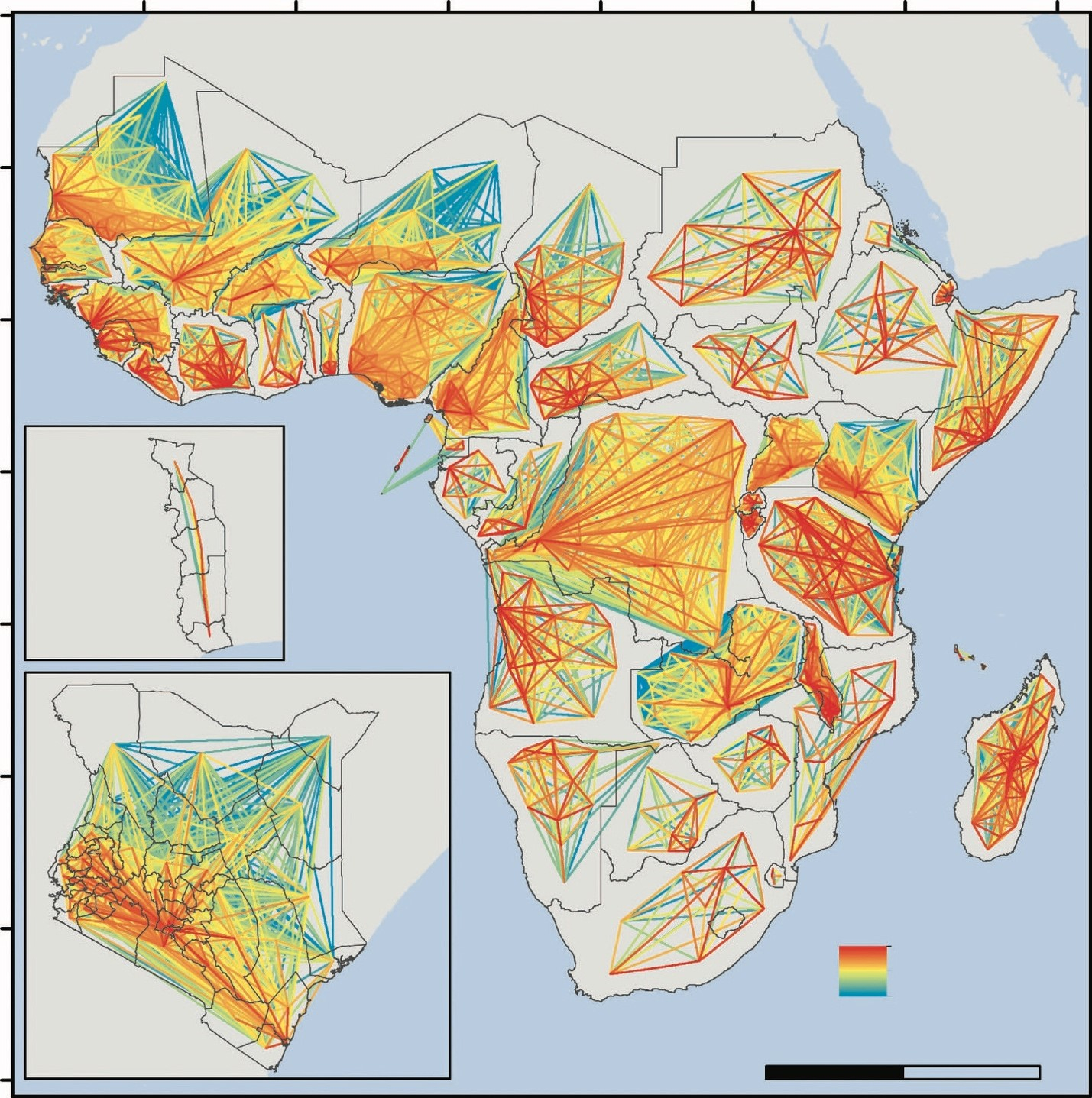
Mapping internal migration of Malaria endemic countries globally by using public micro census data
Summary
This innovative data project developed an approach to map national migration movements by using micro census data from the database of the Integrated Public Use Microdata Series (IPUMPS). For the time period from 2005 to 2010, the research team analysed the data for every Malaria endemic country and computed estimations of internal migration flows between administrative units. In doing so, the results aimed to contribute to better understanding the spread of Malaria and other infectious diseases to help designing global, continental and national public health strategies.
Results
The results of this study provide for a well-founded global overview of existing human movement patterns on the national level that reflect where and how fast infectious diseases such as Malaria spread out. During the ongoing work of WorldPop, the research team also integrated further datasets to inform response policies, aiming to eradicate diseases on the global and local level. Furthermore, these insights can be used to better model the drivers of disease distributions as well. Overall, this innovative research project demonstrated how new ways of analysing publicly accessible data can contribute to better understanding global human mobility and to help designing public health policies that tackle endemics such as Malaria on the local and global level. This approach can be replicated for other contexts as well, for instance, for mapping the international migration movements that contributed to the outbreak of the COVID-19 pandemic.
(Image: © WorldPop)



